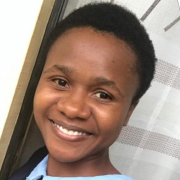Presentations
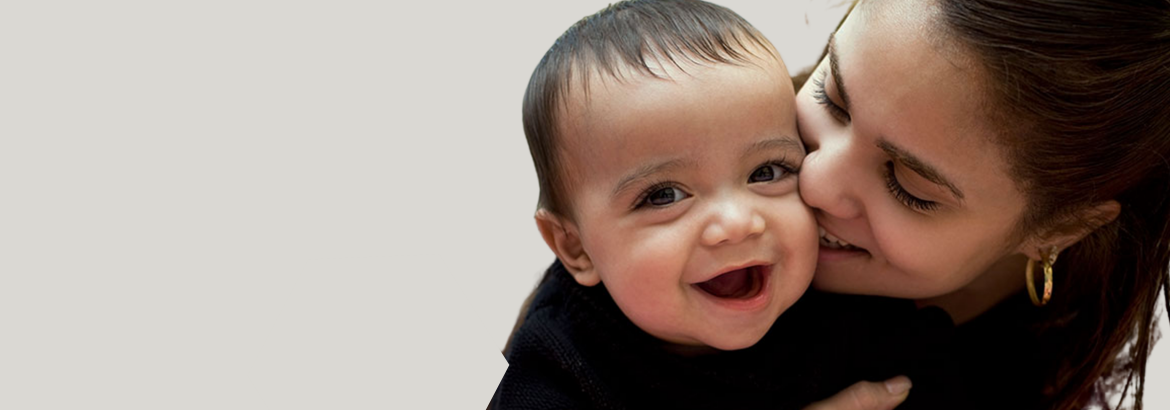
For our current conference, please see here.
Connect • Nourish • Thrive, our 20th online breastfeeding conference in English covered a wide range of topics to inform and guide your clinical practice and to inspire and challenge your thinking about breastfeeding, nutrition and human lactation.
Re-certifying IBCLCs may find this document giving details of the presentations’ Detailed content outline topics helpful, Quick reference for CERPs.
iLactation also offers annual conferences in Spanish and Dutch.
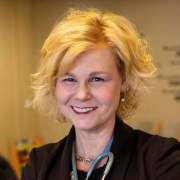
Growing pains: interpreting growth charts and deciding when and how to intervene
Jennifer Thomas, MD, MPH, IBCLC, FABM, FAAP - Read moreGrowing pains: interpreting growth charts and deciding when and how to intervene
Jennifer Thomas, MD, MPH, IBCLC, FABM, FAAP
Dr Jenny Thomas is a pediatrician and breastfeeding medicine specialist in Milwaukee, Wisconsin, USA and is a Clinical Assistant Professor of Community and Family Medicine and Pediatrics at the Medical College of Wisconsin (MCW). She is a graduate of Marquette University and the Medical College of Wisconsin. She did her residency at the Medical College of Wisconsin Affiliated Hospitals, served as Chief Resident in Pediatrics, and did a fellowship in Neonatal/Perinatal Medicine. She has been an International Board Certified Lactation Consultant (IBCLC) since 2003. She is now serving her 11th year on the American Academy of Pediatrics (AAP) Section on Breastfeeding Leadership Team. She is a founder and past Chairperson of the Wisconsin Breastfeeding Coalition and continues to serve as the Chapter Breastfeeding Coordinator for the Wisconsin Chapter of the AAP. She has received national advocacy awards, multiple teaching awards, and has been recognized for innovation within her practice and community. She has been published in Clinical Pediatrics, the Journal of Human Lactation, and Breastfeeding Medicine. She is one of physicians recognized as a Fellow of the Academy of Breastfeeding Medicine (FABM) for her expertise on breastfeeding.
Growing pains: interpreting growth charts and deciding when and how to intervene
How much weight is too much for a newborn to lose? What do we need to consider when a child starts decreasing percentiles for weight? What do changes in the growth curves mean for breastfeeding infants and children? In this talk we will learn about growth curves for preterm and term infants, about how to assess weight and its implications in the neonatal period and what constitutes failure to thrive. We will consider factors that may cause changes in growth percentiles over the first years of life and when we need to intervene.
1.25 L (I, VII) CERP, 1.25 CME, 1.25 CNE and 1.25 CRD CPEU
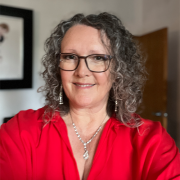
Supporting parents during a pandemic
Denise Ives, DipHE - Read moreSupporting parents during a pandemic
Denise Ives, DipHE
Denise Ives has a Diploma in Breastfeeding Counselling from the University of Bedfordshire in England, is also a La Leche League Leader and active member of the Dunedin Breastfeeding Network. Originally from England, Denise has been educating and supporting breastfeeding families for over 15 years. After moving to New Zealand in 2009, Denise became involved in the WellSouth Primary Health Network breastfeeding peer support programme and went on to establish her own charity, The Breast Room®, in 2011. Denise has an online blog and writes articles for KiwiParent magazine covering common breastfeeding issues and concerns, has written and facilitated antenatal breastfeeding classes in England and New Zealand, and continues to train and mentor breastfeeding peer supporters. Supporting parents online during New Zealand’s first Covid-19 lockdown in 2020 led to Denise publishing her first book, Mamas in Lockdown. Mamas in Lockdown has been very well received and is available world-wide in print and as an e-book; it has been selected to be part of the Books on Prescription programme in the Maternal Wellbeing category – a programme designed to increase access to high quality health information.
Supporting parents during a pandemic
This presentation looks at the experiences of parents giving birth during the first Covid-19 lockdown in New Zealand and the work of The Breast Room®. Having to rapidly move to supporting parents on-line has been a learning curve for many, sometimes with little time to prepare. At a time when parents were, and sometimes still are, having to receive their care at a distance, we take a look at how parents are impacted by these changes, the importance of listening and how writing can be a therapeutic journey. Our experience in New Zealand is relevant across the world to all who are supporting and working with parents during a pandemic situation.
0.75 R CERP, 0.75 CME, 0.75 CNE and 0.75 CRD CPEU
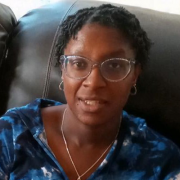
Communication skills required to be an effective breastfeeding peer counselor
Kanisha Lee, BS (Nutrition), Peer Counselor - Read moreCommunication skills required to be an effective breastfeeding peer counselor
Kanisha Lee, BS (Nutrition), Peer Counselor
Kanisha Lee is a well- experienced peer counselor. She first became active in this profession in the early part of 2011 after completing the California WIC Breastfeeding Peer Counseling Program. She gained her experience as a peer counselor for A More Excellent Way Health Organization in Solano County, USA. She also has a Bachelor’s degree in Family and Consumer Sciences with an emphasis in Food and Nutrition from California State University, Sacramento, USA. She is now working towards meeting the requirements to become an International Board Certified Lactation Consultant.
Communication skills required to be an effective breastfeeding peer counselor
How to be an active listener, use open-ended questions to allow for conversation, and how and when to refer a mother to a Lactation Specialist or Healthcare provider.
1.00 R CERP, 1.00 CME, 1.00 CNE and 1.00 CRD CPEU
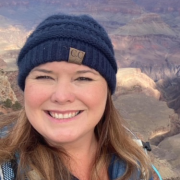
Maternal mental health and breastfeeding: understanding roles and responsibilities
Emily Bernard, MA, IBCLC - Read moreMaternal mental health and breastfeeding: understanding roles and responsibilities
Emily Bernard, MA, IBCLC
Emily Bernard serves as a behavioral, community engagement, and capacity building consultant working across the nation with non-profits, local health departments and community based organizations. Her passion is in counseling families and individuals, and those who aim to support them, to improve their physical and mental health outcomes across many spectrums of care, including childbirth, lactation, and parenting. She also works with organizations to build their communities, as well as facilitate strategic development, partnerships, education and funding opportunities. She is often found online or in-person providing community or project assessments and facilitating conversations while ensuring diversity, equity, and inclusion. She often trains others through curriculum development and implementation and serves as an adjunct faculty professor at Merced College in the Rising Scholars Program through the California State Prisons and instructs other psychology courses to a wide variety of students. She earned a Bachelors of Science and Masters Degree in Psychology with an emphasis in Family Counseling and Health and is currently completing her Doctorate in Clinical Psychology. She became an International Board Certified Lactation Consultant over a decade ago, a doula not long after, and is a Certified Conscious Coparenting Facilitator. She has furthered her collective impact education through the Tamarack Institute for Community Engagement as well as becoming a Master Trainer for TeamSTEPPS through Duke University. She loves spending time with her family outdoors and being an active part of her three children’s lives while residing in the Central Valley of California.
Maternal mental health and breastfeeding: understanding roles and responsibilities
This presentation will focus on maternal mental health disorders such as postpartum depression and anxiety, which are the leading complications of childbirth and can negatively impact infant and child development and the lactation journey. Although treatable, many women are never diagnosed nor receive treatment. Each professional within the lactation landscape has a role or responsibility in how they can help with maternal mental health disorders. Suggested mechanisms, ideas, and examples are offered.
1.00 L (V, VII) CERP, 1.00 CME, 1.00 CNE and 1.00 CRD CPEU
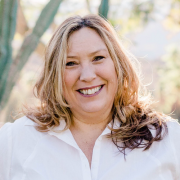
Human milk for early humans
Christy Jo Hendricks, IBCLC, RLC, CLE, CCCE - Read moreHuman milk for early humans
Christy Jo Hendricks, IBCLC, RLC, CLE, CCCE
Christy Jo Hendricks is an international speaker, teacher, inventor and author. She has made a career of instructing in ways that simplify learning and keep audiences engaged. Students enjoy her informative and entertaining teaching style.
Her career has allowed her the privilege of serving families in hospital settings, through public health programs, at her local WIC clinic, during weekly community support groups and in private practice. She has been awarded the Presidential Volunteer Award, Who’s Who among Teachers, Phyllis Klaus Award for Positive Impact on Parent/Infant Bond, Above and Beyond Award for Innovative Practice by the Department of Public Health and Lactation Faculty of the Year from CAPPA. She has also been recognized for her publications.
Christy Jo created and taught an IBCLC prep course that earned state-wide recognition. Her IBCLC prep course has been successful in preparing hundreds of students to become Lactation Consultants.
She resides with her family in California, USA where she continues to serve her community as an IBCLC, CLE, CCCE and birth doula. Christy Jo also works part time for the Department of Public Health and serves as faculty for the CAPPA CLE© and Childbirth Educator Programs.
Human milk for early humans
This presentation explains the unique benefits human milk provides for premature infants. It discusses special needs early babies have and how species-specific milk meets those needs. It also discusses the emotions and care of families experiences caring for premature infants.
1.00 L (I, VI, VII) CERP, 1.00 CME, 1.00 CNE and 1.00 CRD CPEU
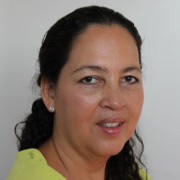
Shadows of birth in breastfeeding
Waleska Porras, LLL Leader, Doula - Read moreShadows of birth in breastfeeding
Waleska Porras, LLL Leader, Doula
Waleska Porras is a social communicator. She was born in Guatemala, where she worked for ten years in UNICEF. In 1994 she moved to Costa Rica, and when she became a mother, her passion for breastfeeding was born. She has been a La Leche League Leader for 23 years. Besides providing mother to mother support, she has held administrative positions in the Publications and Communication Skills Development departments. She is the author of the book En busca del oro líquido (In Search of Liquid Gold). She is an international speaker on breastfeeding and childbirth issues. Since 2007 she has collaborated with MAMASOL in Costa Rica, on issues of humanization of birth, and training of doulas.
Shadows of birth in breastfeeding
It is well known that some routine birth interventions can have an impact on the initiation of breastfeeding, and that the more the physiology and natural process of birth are respected, the fewer complications we can expect in the first days of the baby’s life. In this presentation we will go beyond the physical aspects and talk about how the experience of labour and of being born can deeply affect both the mother and her baby´s physical and emotional health and wellbeing. Sometimes for the rest of their lives.
1.50 L (V, VI, VII) CERP, 1.50 CME, 1.50 CNE and 1.50 CRD CPEU

A square peg in a round hole: answers on drug transfer in lactation made simple
Karolina Morze, MPharm - Read moreA square peg in a round hole: answers on drug transfer in lactation made simple
Karolina Morze, MPharm
Karolina Morze is a pharmacist and specializes in pharmacotherapy in lactation. She works as a consulting pharmacist in a private practice in Poland. In her clinical practice she works with lactating individuals with various health issues, helping mothers with both common problems, chronic or rare diseases to reconcile the therapy and breastfeeding with as little intervention as possible, respecting mothers’ wishes and needs.
She conducts training for IBCLCs, midwives, doctors, pharmacists and other medical professionals as well as non-medical lactation supporters in the field of medication and breastfeeding, attempting to explain complex pharmacological problems in an easy to understand way. She conducts cross-sectional survey research on the outcomes of maternal medication on the breastfed children.
She is a member of the Polish Society of Clinical Pharmacy and a volunteer in The Foundation for Breastfeeding Promotion. She is also an author of several books and publications.
A square peg in a round hole: answers on drug transfer in lactation made simple
The knowledge on pharmacotherapy in lactation that we obtain while training usually does not prepare us well for drug problems we might encounter in our everyday practice. We all know that most drugs transfer to milk. But we do not get the most vital piece of information – why is that? How is that? And is it really that important?
We will travel to prehistoric times, look at the breast tissue at many different angles, analyze the ways of cellular transport, discuss why it actually exists and what are the consequences. We will talk about the most crucial aspect of drug safety assessment – the dose. We will walk the path of a drug, tracking it way through the organism of the mother, the milk and the baby.
1.50 L (IV) CERP, 1.50 CME, 1.50 CNE and 1.50 CRD CPEU

A lactation specialist's guide to baby poop!
Charlotte Treitl, BSc, IBCLC - Read moreA lactation specialist's guide to baby poop!
Charlotte Treitl, BSc, IBCLC
Charlotte Treitl is a psychologist and IBCLC based in the North West of England, UK, with years of experience as a peer supporter and volunteer coordinator. Charlotte specialises in baby poo exploration! Charlotte works tirelessly to support, protect, and promote breastfeeding. Her passion comes from her own difficult experience breastfeeding her son, Leo, which led to breastfeeding grief and trauma. Charlotte was able to successfully breastfeed Leo past infancy after accessing the right support, which galvanised her to work towards her IBCLC accreditation. Charlotte provides infant feeding support to families in a variety of settings, and frequently takes part in providing training and education for other baby and childcare professionals on a variety of infant feeding topics.
A lactation specialist’s guide to baby poop!
Baby poo is something that all families obsess over. If eyes are the window to the soul, then poo is the window to the gut! But what do we really know about it? How can we, as lactation specialists, support families who are experiencing issues with their baby’s stools? This presentation looks at the current evidence base for infant stool type and patterns, the ways in which stool type and patterns can be affected during breastfeeding, and gives insight into the ways families need support when stooling becomes a source of anxiety and distress.
0.75 L (II, V, VI, VII) CERP, 0.75 CME, 0.75 CNE and 0.75 CRD CPEU

Breastfeeding in post-disaster settingsandKnowledge mobilization tool to promote, protect and support breastfeeding during COVID-19
Shela Hirani, PhD, IBCLC, RN, Advanced Diploma in ECD - Read moreBreastfeeding in post-disaster settingsandKnowledge mobilization tool to promote, protect and support breastfeeding during COVID-19
Shela Hirani, PhD, IBCLC, RN, Advanced Diploma in ECD
Dr Shela Hirani is an Associate Professor at the University of Regina, Faculty of Nursing, Canada. She is a neonatal and child health nursing professional, nurse-academician, nurse-researcher, and an International Board-Certified Lactation Consultant. Dr Hirani is actively involved in the promotion, protection, and support of breastfeeding at diverse settings, including disaster relief camps, mothers’ workplace setting, child daycare center, hospitals, and post-secondary institutions of low-income, middle-income and high-income countries. She has an established program of research surrounding breastfeeding advocacy among marginalized group of mothers and young children who are refugee, immigrants, internally displaced, homeless, and affected by the pandemic.
Breastfeeding in post-disaster settings
Post-disaster settings are one of the most vulnerable settings where women are at risk of discontinuing their breastfeeding practices. Although challenges associated with continued breastfeeding during disasters and displacements are prevalent globally, they are particularly problematic in the context of low-middle income countries. Pakistan is a low-middle income country where infant and child mortality rates are high. This country often faces disasters such as earthquakes and floods that exacerbate the discontinuation of breastfeeding. This critical ethnographic study aims to explore the facilitators and barriers to breastfeeding practices of internally displaced mothers residing in the post-disaster settings in Pakistan.
1.00 L (V, VII) CERP, 1.00 CME, 1.00 CNE and 1.00 CRD CPEU
Knowledge mobilization tool to promote, protect and support breastfeeding during COVID-19
The COVID-19 pandemic has increased the vulnerability of mothers and young children due to lack of opportunity to have regular contact with healthcare professionals, inaccessibility to breastfeeding counselling facilities, growing myths and misconceptions surrounding breastfeeding during the COVID-19 pandemic, loss of family income, and stress associated with uncertain future, etc. During this crucial period, there have been discrepancies in the initially available literature about the recommendation of short-term separation of COVID-19 positive mothers from their infant following childbirth, direct breastfeeding, and use of expressed breastmilk. This knowledge mobilization project was conceptualized with the goal of increasing awareness among breastfeeding mothers and the general public on safe infant feeding practices during this pandemic.
1.00 L (VII) CERP, 1.00 CME, 1.00 CNE and 1.00 CRD CPEU
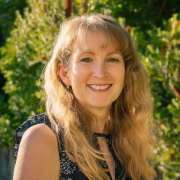
40 Years of the WHO International Code: what is it, why does it exist, and how does it protect the rights of children and women?
Karleen Gribble, PhD, BRurSc, CertIV Breastfeeding Education (Counselling) and (Community) - Read more40 Years of the WHO International Code: what is it, why does it exist, and how does it protect the rights of children and women?
Karleen Gribble, PhD, BRurSc, CertIV Breastfeeding Education (Counselling), Cert IV Breastfeeding Education (Community)
Karleen Gribble is an Adjunct Associate Professor in the School of Nursing and Midwifery at Western Sydney University. Her interests include infant and young child feeding in emergencies, regulation of the marketing of breastmilk substitutes, child rights, parenting and care of maltreated children, caregiver-child and child-caregiver attachment, adoption reform, and treatment of infants within the child protection, immigration detention, and criminal justice systems. She has published research, provided media commentary, contributed to government enquiries, provided expert opinion for courts, and engaged in training of health professionals, social workers, and humanitarian workers on these subjects. Karleen passionately advocates for recognition of the importance of mothers to their infants and works to create environments that support breastfeeding and the mother-infant relationship, particularly in situations of adversity. Karleen is also an Australian Breastfeeding Association Community Educator and Breastfeeding Counsellor.
40 Years of the WHO International Code: what is it, why does it exist, and how does it protect the rights of children and women?
The WHO International Code was adopted by the World Health Assembly in 1981 and has since been strengthened by 20 subsequent Resolutions. But what is it, how did it come about, how does it protect the rights of children and women, and what are the responsibilities of individuals and organisations under the Code? This presentation will answer all of these questions and clearly show how, more than anything else the WHO International Code has enabled infants to be breastfed.
1.00 E (VII) CERP, 1.00 CME, 1.00 CNE and 1.00 CRD CPEU
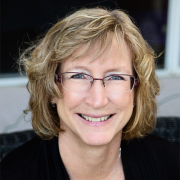
Metabolic health matters: breastfeeding on the insulin resistance spectrum
and
When the butterfly goes astray: how thyroid dysfunction can undermine breastfeeding
Lisa Marasco, MA, IBCLC, FILCA
- Read more
Metabolic health matters: breastfeeding on the insulin resistance spectrum
and
When the butterfly goes astray: how thyroid dysfunction can undermine breastfeeding
Lisa Marasco, MA, IBCLC, FILCA
Lisa Marasco has been working with breastfeeding mothers for 35 years and has been Internationally Board Certified since 1993. She holds a Master’s degree in Human Development with specialization in Lactation Consulting and was designated a Fellow of ILCA in 2009. Lisa is co-author of Making More Milk: The Breastfeeding Guide to Increasing Your Milk Production, a contributing author to the Core Curriculum for Interdisciplinary Lactation Care, and a new Cochrane Collaborative author. She is employed by WIC of Santa Barbara County while she continues to research, write and speak. In addition, Lisa is affiliated with La Leche League of So. Calif/Nevada, and serves on the Breastfeeding Coalition of Santa Barbara County, California, USA.
Metabolic health matters: breastfeeding on the insulin resistance spectrum
Insulin is part of the Lactogenic Complex and Lactogenesis 2 cannot start without it. Until recently, however, we did not understand its role well. Emerging research is starting to shed light on specific roles for insulin in both pregnancy breast development as well as milk synthesis. Discover the how and why insulin resistance, type 2 and gestational diabetes can cause lactation problems, and what strategies may be helpful for affected parents.
1.50 L (II, III, VI, VII) CERP, 1.50 CME, 1.50 CNE and 1.50 CRD CPEU
When the butterfly goes astray: how thyroid dysfunction can undermine breastfeeding
The connection between the thyroid gland and milk production has not been well-recognized or appreciated . The good news is that new animal research is providing us insights into the possible effects of thyroid dysfunction. This talk takes a detailed look at hypothyroidism, hyperthyroidism, postpartum thyroiditis and thyroid cancer and the unique challenges each present for lactation, and then discusses treatment strategies and interfacing with the health care team.
1.50 L (II, III, VI, VII) CERP, 1.50 CME, 1.50 CNE and 1.50 CRD CPEU

Old tricks, new opportunities: how companies violate the International Code of Marketing of Breast-milk Substitutes and undermine maternal and child health during the COVID-19 pandemic
Constance Ching, MSW - Read moreOld tricks, new opportunities: how companies violate the International Code of Marketing of Breast-milk Substitutes and undermine maternal and child health during the COVID-19 pandemic
Constance Ching, MSW
Constance Ching currently works for Alive & Thrive (FHI 360), providing technical support in Code advocacy and improved implementation in the ASEAN region. Prior to that, she worked for IBFAN-ICDC, was involved in capacity building with governments, UN agencies and NGOs on Code implementation and monitoring. Constance also participated in the World Health Assembly and other global forums to advocate for stronger Code-related measures. Her other work experiences include supervising a university-wide service-learning program in Hong Kong and managing community programs for homeless people living with HIV/AIDS and mental illness in New York City, USA. She is currently based in Penang, Malaysia.
Old tricks, new opportunities: how companies violate the International Code of Marketing of Breast-milk Substitutes and undermine maternal and child health during the COVID-19 pandemic
The COVID-19 pandemic has contributed to disruptions in the health, food and economic systems, exacerbating infant and young child malnutrition and mortality. It is a time when breastfeeding is especially critical for maternal and child health and survival. Yet, formula companies are capitalizing on the public health crisis to promote their products and undermine breastfeeding, violating the International Code of Breast-milk Substitutes. Tactics include using fears as a springboard for health claims and appearing in solidarity with the public on the fight against COVID-19. In this presentation the speaker will examine themes of companies’ aggressive and unethical marketing tactics during the COVID-19 pandemic based on findings from 14 countries and 9 companies. Implications for health workers, programs and policy, including challenges in Code implementation and recommended actions, will also be discussed.
1.25 E (VII) CERP

Socio-environmental benefits of human lactation: food sovereignty from the start
Alejandra Marina de Mercado, MD - Read moreSocio-environmental benefits of human lactation: food sovereignty from the start
Alejandra Marina de Mercado, MD
Dr Alejandra Marina de Mercado is a Specialist in Family Medicine, Specialist in Breastfeeding, Postgraduate in Social and Community Medicine, Postgraduate in Applied Health Research Methodology. She is Adjunct Professor at FACIMED UNCO where she directs a Postgraduate course in Natural Breastfeeding and hosts a Lactation Clinic Seminar and another on Food Sovereignty and Environmental Health. She is the proud mother of Florencia, Ailín, Ariadna and Samanta, and the grandmother of Rafael.
Socio-environmental benefits of human lactation: food sovereignty from the start
The production and consumption of powdered infant formula poses a great threat to our environment, but despite warnings from experts and institutions, knowledge and research on the subject is scarce. Right now, the health benefits of breastmilk have been widely publicised, but breastfeeding is not just about global health, but also about sustainability. Breastfeeding is, however, rarely considered an environmental problem. Are there really many women who do not produce enough or good quality milk? Or is it a hidden interference towards breastfeeding, to be suppressed by the commercial interests behind the myth of the scarcity and quality of breast milk? Every day, for every baby that passes through the breast, a $70 billion industry loses a sale. Can breastfeeding be considered an act of food sovereignty?
0.50 L (I, V) CERP, 0.50 CME, 0.50 CNE and 0.50 CRD CPEU
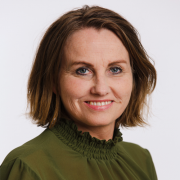
Tongue and lip tie - increased awareness among parents in Iceland on how it affects breastfeeding
Sonja Magnúsdóttir, SLP-CCC - Read moreTongue and lip tie - increased awareness among parents in Iceland on how it affects breastfeeding
Sonja Magnúsdóttir, SLP-CCC
Sonja Magnúsdóttir graduated as a speech-language pathologist (SLP) from the University of Akron, Ohio, USA in 2002. As well as assessing and treating speech and language issues in children, Sonja is also a pediatric feeding therapist with a special interest in orofacial myology disorders, including tethered oral tissues and oral habits. She is a recommended provider from the Thumbsucking Clinic™ in Australia and recently signed up to start her IBCLC journey.
Sonja has attended many conferences and continuing education courses in feeding and orofacial myology. She is a member of the International Consortium of Ankyloglossia Practitioners (ICAP); the International Association of Orofacial Myologists (IAOM); the American Speech and Hearing Association (ASHA) and the Icelandic Association of Speech-Language Pathologists (FTÍ).
Sonja provides a lot of information on feeding and oral development (in Icelandic) on her website, www.maturogmunnur.is and uses the social media platforms (Instagram and Facebook) for informative purposes @maturogmunnur.
Tongue and lip tie – increased awareness among parents in Iceland on how it affects breastfeeding
A tongue-tie is not something that has recently been discovered. It is a phenomenon that has existed for a long time, but it is only recently that professionals are seeing the impact it can have with an increasing number of studies on the matter. This presentation will talk about how awareness of tongue ties has increased among Icelandic parents and their attempts to seek correct diagnosis and treatment.
0.50 L (III, VI) CERP, 0.50 CME, 0.50 CNE and 0.50 CRD CPEU
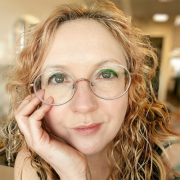
Thrown in the deep end: how women learn to feed their babies, why it goes wrong and how to help
Miranda Buck, PhD, RN, BA(Hons), MPhil, IBCLC - Read moreThrown in the deep end: how women learn to feed their babies, why it goes wrong and how to help
Miranda Buck, PhD, RN, BA(Hons), MPhil, IBCLC
Dr Miranda Buck is a neonatal nurse, lactation consultant and Lecturer in Nursing based at the Northern Centre for Health, Education and Research. Her research focuses on how we learn and make decisions about health, individually and as communities.
Thrown in the deep end: how women learn to feed their babies, why it goes wrong and how to help
In this presentation Australian nurse researcher Dr Miranda Buck describes why distress and disappointment are still common experiences of early parenthood, why it really does matter, and what we can do to prepare and protect families. Central to her argument is emerging research on neuroplastic vulnerability during pregnancy that may expose women to long-term repercussions of inadequate care and support in the post partum period.
1.00 L (V, VII) CERP, 1.00 CME, 1.00 CNE and 1.00 CRD CPEU
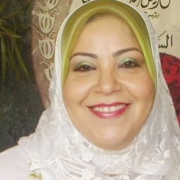
Working mothers' rights for exclusive breastfeeding
Zeinab Abdulatif, MD, IBCLC - Read moreWorking mothers' rights for exclusive breastfeeding
Zeinab Abdulatif, MD, IBCLC
Zeinab Abdulatif is a Pediatrics and Neonatology Consultant, an IBCLC and an infection control specialist working at Wady- El Nile Hospital (National Defense Council), Egypt.
Working mothers’ rights for exclusive breastfeeding
Breastmilk is the natural first food for babies; it provides all the energy and nutrients that the infant needs. Review of evidence has shown that, on a population basis, exclusive breastfeeding for 6 months is the optimal way of feeding infants. Its benefits are universal; as relevant to mothers and children living in high-income countries as to those in living in middle- and low-income countries. To protect, promote and support breastfeeding, measures at many levels are needed. These include legal and policy directives, supportive social attitudes and values, maternity protection and work-site breastfeeding policies, along with health-care services that foster and enable mothers to breastfeed. In addition, women and their families need protection from inappropriate and unethical marketing of breastmilk work is a leading reason for not breastfeeding or early weaning .
The two major factors influence exclusive breastfeeding among working mothers: practice of exclusive breastfeeding (knowledge and understanding of exclusive breastfeeding, and experience in exclusive breastfeeding) and workplace factors (length of maternity leave, closing time, absence of maternity policy in organizations, inadequate institutional support and family work-life balance). The availability of breaks and on-site rooms for breastfeeding and the provision of maternity leave are important given the increasing numbers of women in the workforce. Support the mothers with all information and counseling of the surroundings and society around the work with the entire subject needed.
0.50 L (V, VI, VII) CERP, 0.50 CME, 0.50 CNE and 0.50 CRD CPEU

Can breastfeeding reduce hospitalization from common infectious diseases in childhood?
Claire Neill, MB, BCH, BAO, MRCGP, MFPH, Mphil, MPH, DRCOG, DMH - Read moreCan breastfeeding reduce hospitalization from common infectious diseases in childhood?
Claire Neill, MB, BCH, BAO, MRCGP, MFPH, Mphil, MPH, DRCOG, DMH
Claire Neill is a specialty registrar in Public Health Medicine currently in her final year of training. Prior to working in Public Health, Claire was as a General Practitioner, and during her training also completed General Practice academic training and a research Masters with the Department of General Practice and Centre for Public Health at Queen’s University Belfast. She has developed an interest in population health research, with a particular focus on infectious disease prevention. She completed the Masters in Public Health in 2018, and it was during this time she developed an interest in breastfeeding research and particularly, in relation to infectious disease prevention.
Can breastfeeding reduce hospitalization from common infectious diseases in childhood?
Gastrointestinal and respiratory-tract illnesses are the most common infectious diseases contracted in childhood and interventions aiming to reduce the associated morbidity and mortality are therefore of significant public health interest.
Breastfeeding has the potential to reduce morbidity and mortality from illnesses, including infectious diseases, in childhood. The extent to which this applies to developed countries where alternatives to breastmilk are readily available and partial feeding is more common remains uncertain. This study sought to assess the association of breastfeeding with hospitalisation from a gastrointestinal or respiratory-tract illness in the first two years of life, concluding that breastfeeding has the potential to reduce hospitalisation from common childhood infections, proportional to duration and exclusivity.
0.50 L (III, VII) CERP, 0.50 CME, 0.50 CNE and 0.50 CRD CPEU
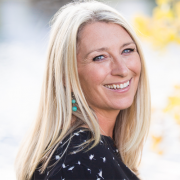
A gentle touch: the unique lactation needs of post-cesarean parents
Laurel Wilson, IBCLC, RLC, CLE, CLD, CCCE - Read moreA gentle touch: the unique lactation needs of post-cesarean parents
Laurel Wilson, IBCLC, RLC, CLE, CLD, CCCE
Laurel Wilson has twenty-nine years of experience working with families in the childbearing year and perinatal professional and travels the world (when not experiencing a pandemic) speaking about the importance of human milk and attachment. She is co-author of best-selling books, The Greatest Pregnancy Ever: The Keys to the MotherBaby Bond and The Attachment Pregnancy: The Ultimate Guide to Bonding with Your Baby, original Editor of the CAPPA Lactation Educator Manual, and contributing author to Round the Circle: Doulas Talk About Themselves. Laurel is a board-certified as a lactation consultant, childbirth educator, labor doula, lactation educator, Prenatal ParentingTM Instructor, and Pre and Postpartum fitness educator. She served as the CAPPA Executive Director of Lactation Programs for 16 years. She served on the Board of Directors for the United States Breastfeeding Committee from 2016-2019. Her current service roles include acting as a Senior Advisor for CAPPA, being on the Advisory Board for InJoy Health and Kindred Media, and acts as a board member at large for the Colorado Breastfeeding Coalition.
Laurel has been joyfully married to her husband for 30 years and has two amazing sons, whose difficult births led her on a path towards helping emerging families create positive experiences. She believes that the journey towards and into parenthood is a life-changing rite of passage that should be deeply honored and celebrated.
It is FINALLY live. My TedX Talk, Human Milk: The Food That Helped Evolve Humanity. #TEDXCOS Please watch, share, and enjoy!
A gentle touch: the unique lactation needs of post-cesarean parents
With a cesarean rate of around the world 3-5 times the World Health Recommendation suggested rate in some countries, the need for specific lactation support that meets the unique needs of these mothers is imperative. Parents who have had cesarean section are at risk of edematous breasts, sedated or sleepy babies, delay in lactogenesis, increased pain, and difficulty moving in early postpartum. This presentation looks at the new concept of family-centered cesarean and how this approach changes lactation outcomes and family attitudes about their birth. Additionally, techniques and information for better success post-cesarean will be reviewed.
1.50 L (V, VI, VII) CERP, 1.50 CME, 1.50 CNE and 1.50 CRD CPEU

